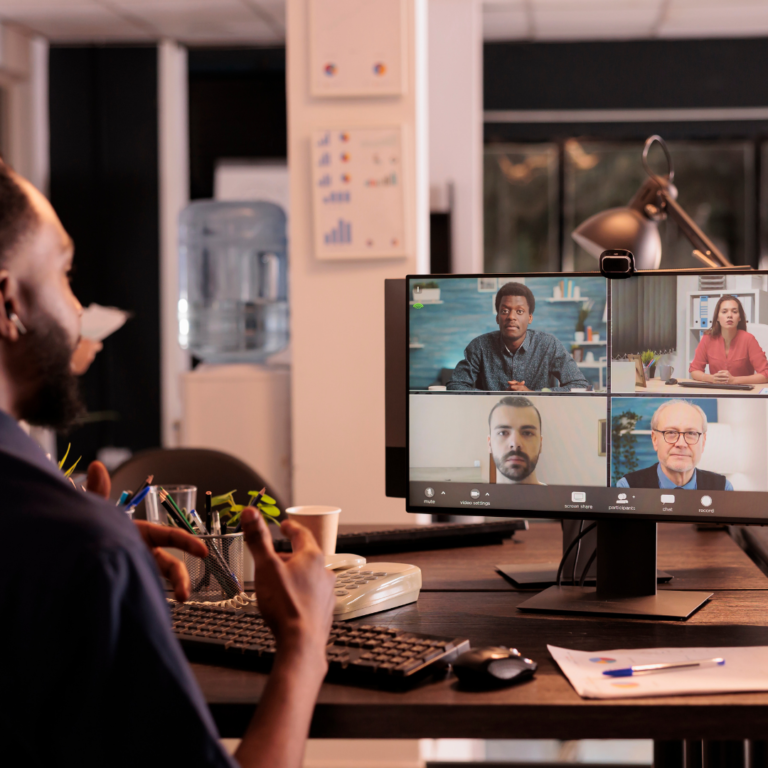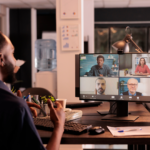In today’s fast-paced world, effective communication is more important than ever. One of the most powerful skills you can develop to improve your communication is active listening. Unlike passive hearing, active listening requires full attention and engagement, helping you understand the speaker’s message better and fostering stronger relationships. In this article, we’ll explore the benefits of active listening and provide practical tips on how to master this essential skill.
Understanding Active Listening
Active listening involves fully concentrating, understanding, responding, and remembering what is being said. It goes beyond just hearing the words; it’s about understanding the complete message, including the emotions and intentions behind the words.
Benefits of Active Listening:
- Enhanced Relationships: Builds trust and fosters stronger personal and professional relationships.
- Improved Problem-Solving: Leads to better understanding and resolution of issues.
- Increased Productivity: Results in more effective collaboration and teamwork.
- Greater Empathy: Helps you understand others’ perspectives and feelings.
Practical Tips to Improve Active Listening
1. Give Your Full Attention
- Eliminate Distractions: Turn off your phone, close unnecessary tabs on your computer, and find a quiet environment to minimize interruptions.
- Focus on the Speaker: Make eye contact and show that you are fully present in the conversation.
2. Show That You’re Listening
- Non-Verbal Cues: Nod occasionally, smile, and use facial expressions to show you’re engaged.
- Verbal Acknowledgements: Use small verbal cues like “I see,” “I understand,” and “Go on” to encourage the speaker to continue.
3. Provide Feedback
- Reflect and Paraphrase: Summarize what the speaker has said to ensure you’ve understood correctly. For example, “What I’m hearing is…” or “It sounds like you’re saying…”
- Ask Questions: Clarify points and dig deeper into the topic by asking open-ended questions.
4. Avoid Interrupting
- Let Them Finish: Resist the urge to jump in with your thoughts or solutions. Allow the speaker to complete their message before responding.
- Mind Your Responses: Even if you disagree, wait until the speaker has finished before you share your perspective.
5. Respond Appropriately
- Be Honest and Respectful: Share your thoughts and feedback in a respectful manner. Honesty is important, but it should be delivered thoughtfully.
- Stay on Topic: Address the points the speaker has made without veering off into unrelated subjects.
Implementation in Different Scenarios
1. In the Workplace
- Team Meetings: Use active listening to understand team members’ ideas and concerns, fostering a collaborative environment.
- Client Interactions: Build stronger relationships with clients by truly understanding their needs and responding effectively.
2. In Personal Relationships
- Family Conversations: Strengthen family bonds by actively listening to your loved ones, showing that you value their thoughts and feelings.
- Friendships: Deepen friendships by being a reliable and understanding listener.
Overcoming Common Barriers to Active Listening

1. Prejudices and Biases
- Stay Open-Minded: Approach each conversation without preconceived notions. Be willing to hear and understand differing viewpoints.
2. Emotional Reactions
- Manage Emotions: If a topic triggers an emotional response, take a deep breath and focus on staying calm and objective.
3. Attention Span
- Practice Mindfulness: Regular mindfulness practices can help improve your ability to stay focused and present during conversations.
The Impact on Personal and Professional Growth
Active listening can significantly enhance both your personal and professional life. In personal relationships, it fosters deeper connections and mutual understanding. In professional settings, it improves teamwork, problem-solving, and productivity. By mastering active listening, you can become a more effective communicator, build stronger relationships, and achieve greater success in all areas of your life.
Case Study: The Mapes Mindset
At The Mapes Mindset, we emphasize the importance of active listening in our coaching sessions. Our clients who adopt active listening techniques often report improved relationships and communication skills. By truly understanding and addressing their needs, we help them achieve their goals and unlock their potential. Click here to learn more.
Conclusion
Active listening is a crucial skill that can transform your communication and relationships. By giving your full attention, showing that you’re listening, providing feedback, avoiding interruptions, and responding appropriately, you can become a more effective listener. Start incorporating these tips into your daily interactions and experience the powerful impact of active listening. For more personalized guidance and support in developing effective communication skills, join our Facebook group, sign up for a free discovery session, or subscribe to our newsletter at The Mapes Mindset.






